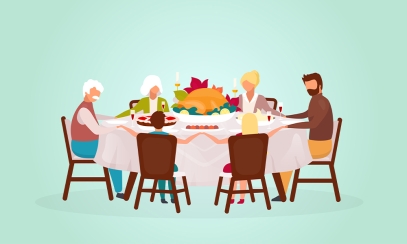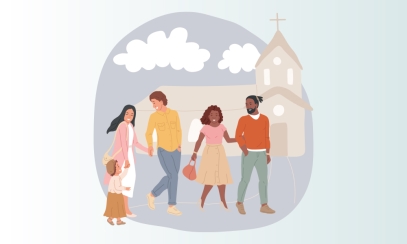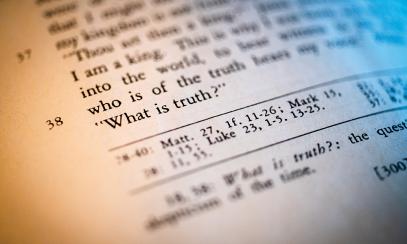
Needs and choices
In 1965, the psychiatrist Dr. William Glasser introduced Reality Therapy to the psychological world. This counseling technique enables clients to better understand their goals and how it drives their actions and decisions or choices. Glasser also proposed Choice Theory, stating that our behavior is driven by five basic needs for safety, love and belonging, power, freedom, and fun. He encouraged individuals to focus on their own choices with the realization that they can only control their own behavior and not the actions or decisions of others. In the secular world, this makes perfect sense. We are hard wired to function from day to day to meet a specific need at any given time.
In 1965, the psychiatrist Dr. William Glasser introduced Reality Therapy to the psychological world. This counseling technique enables clients to better understand their goals and how it drives their actions and decisions or choices. Glasser also proposed Choice Theory, stating that our behavior is driven by five basic needs for safety, love and belonging, power, freedom, and fun. He encouraged individuals to focus on their own choices with the realization that they can only control their own behavior and not the actions or decisions of others. In the secular world, this makes perfect sense. We are hard wired to function from day to day to meet a specific need at any given time.
Safety is essential for survival. We are driven to satisfy the need to ensure we have food, water, and shelter. When we are hungry or thirsty, we eat and drink, respectively. If we are afraid, we seek comfort through knowing we have the capacity for protection. We want friends and companions because we are social beings. Being accepted by family and our peers is important because it is interwoven in meeting other needs of safety, power, and fun. Love and belonging connect us to the surrounding world and are often used in defining who we are as individuals.
While we want that connection for fun and enjoyment, we do not want to feel restricted. We want to act according to our own free will. We want a choice and to make our own decisions.
There is this innate desire to be free, but sometimes we do not know exactly what freedom “looks like.” We ponder if freedom is something that we do. We ask ourselves, “If I have freedom, does it mean I have power?”
Power is a need that does not simply imply we have control over ourselves, others, or the world around us. Power also means respect or significance. We often define who we are as individuals by our achievements and accomplishments and what we have done based on the choices we have made.
Luckily, in the secular world, there are ways, such as counseling, that can translate psychological theories and concepts into spiritual realizations to strengthen an individual’s understanding of what God really wants of you and how your decisions and actions are helping you reach those goals. In the spiritual world, the Catholic Church has several practical ways through which an individual can meet some of those basic human needs — we call them sacraments.
Even if you have never read anything about the work of Dr. William Glasser, know not only that we need the salvation that was freely given to us through the sacrifice of Jesus Christ but that God gave us the freedom to love and choose Him — a choice which, in any circumstance, makes perfect sense.
Griena H. Knight Davis is a licensed professional counselor at Catholic Family Services in Birmingham. She has a doctorate degree in education and is a national certified counselor, Board-certified coach, and Board-certified-telemental health counselor.



